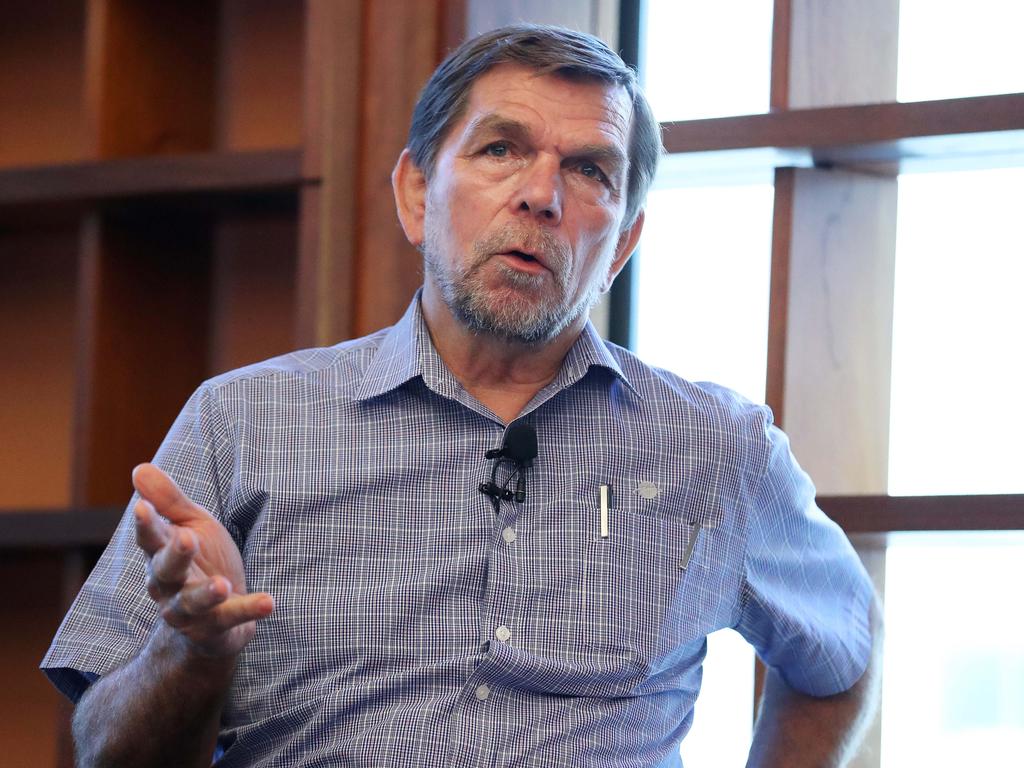Big business springs to action to shore up the economy

For months, if not years, the top end of town has been criticised, sneered at, even despised by an increasingly sceptical community: from the class warfare of Wayne Swan in 2014 to the broadside attack on business as “self-appointed moral guardians” by Ben Morton, the Prime Minister’s assistant minister in 2017, and followed by the royal commission expose of banking and more recently with underpayment scandals. Some of this was deserved.
But now in an economic crisis, the first crisis that many Australian will have ever experienced in their lives, the government needs the foundations of the economy, big business, to help bear the brunt. As the Prime Minister calls for patriotism, for business to look after their employees, for banks to show sensibility with their small business customers and for business generally to bat on, business leaders are responding — and that is being acknowledged.
How many times has the PM thanked Qantas and Alan Joyce for the airline’s help with transport during the crisis in the last few days? Thanks too, to the big four banks who all passed on in full the latest rate cut, as the RBA’s cash rate fell to 0.5 per cent and margins were hit. To help assess the impact of the government’s targeted cash splash, Josh Frydenberg says the banks will be providing EFTPOS data to the government.
On Tuesday, Business NSW told its members that personal or carers leave was not available for full-time or part-time workers who need to self-isolate but were not yet diagnosed. Notwithstanding that advice, on Wednesday Telstra, one of Australia’s largest employers, took a lead. It announced that all workers who could not work from home, including engineers, would be guaranteed up to 14 days paid leave if forced into isolation by the coronavirus or needing to look after children if schools or childcare centres close. It earned the telco another personal mention from the PM. On Thursday, Woolworths announced the same for its huge workforce, importantly including casual workers.
On Thursday, during the Treasurer’s post stimulus call to key journalists, my colleague Bob Gottliebsen pushed Josh Frydenberg on why he had not specifically moved to force big business to act on their slow payments to small business suppliers. While the BCA says there is progress among its members, it is still a work in progress for big corporates and would indeed do much to improve cashflows for small businesses.
Jobs have been the priority of the government from the get-go. Scott Morrison stresses that his $17.6bn stimulus package is “to keep Australians in jobs, businesses in business and that we ensure that the economy is in a position to bounce back strongly on the other side”. Three in four dollars of stimulus is directed at business, including the instant asset write-off and accelerated depreciation running out to June 2021.
“We are focused on the recovery stage” the Treasurer explains “and accelerated depreciation could make a very big difference.”
Interestingly while this is a package targeted to the demand side of the crisis, on the supply side at the epicentre of the COVID-19 crisis in China, Australian businesses had some better news for the Treasurer. While not wanting to overstate it, Frydenberg told journalists he had spoken to companies like Seek, BlueScope and Dulux (now Japanese owned).
“We are hearing from Australian businesses that have got a presence in China that people are starting to get back to work. Australian businesses, with thousands of employees in China, are talking about 75 per cent to 97 per cent of their workers now back in the factories and supply chains starting to pick up”, Frydenberg said.
Here in Australia this week, among several floors being emptied of staff are lawyers at Mallesons and Norton Rose and bankers and brokers at Westpac and Bell Potter. The conference market, after an healthy growth spurt has been decimated; gatherings postponed along with the revenues, networking and economic activity that go with them.
Crises are awful, but they often come with opportunity. With COVID-19, opportunity knocks for big business to rebuild confidence with Australians and with the government. Across the nation, the BCA’s BizRebuild led by Sir Peter Cosgrove is also putting big business to work on jobs in the community after the devastation of the fires.
At a personal level, Alan Joyce has dropped his salary for the rest of the financial year and bonuses for the year for the executive team are cancelled. Several business leaders in the top 50 have signalled similar moves. The point is that these big corporate boards are being proactive as their share prices plummet and they grapple with supply chain disruption on an unprecedented scale. It is what boards should be doing.







When the proverbial hits the fan and there is no toilet roll, the government is turning to big business. As the market hurtles into bear territory faster than any previous market crisis in Australian history, this is a remarkable change of play. The importance of this moment should not be understated with a business community wondering how it can regain its once strong reputation within the national psyche.